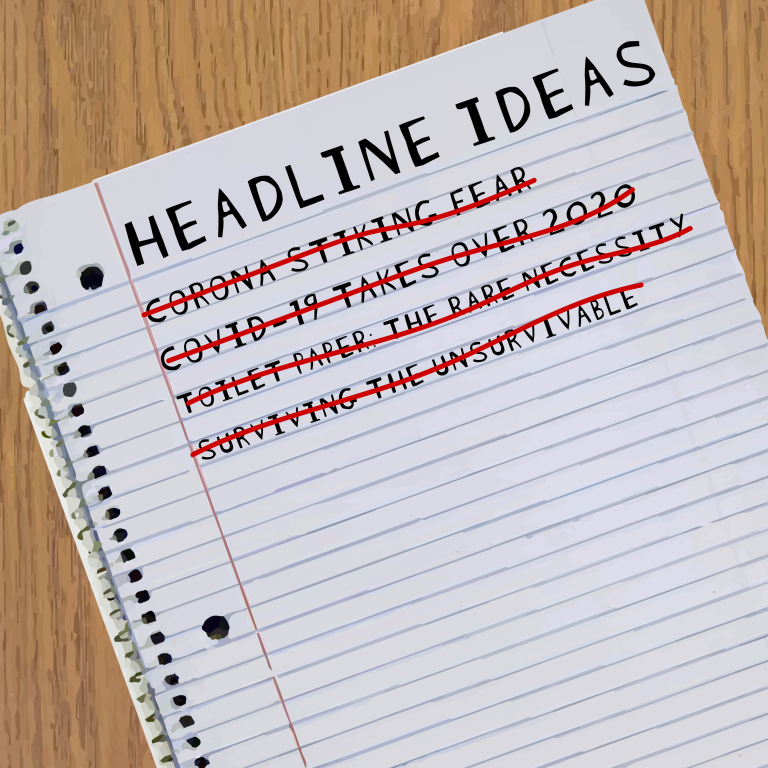Is the media fear mongering? Sometimes it’s hard to tell. COVID-19 coverage varies by state and outlet, but as The Collegian staff approached it, we remembered a few things. First, it is our job to tell the truth. Anyone who tells you otherwise either isn’t a journalist or doesn’t understand how journalism works.
Second, it is imperative that we consider how we tell a story when we tell it. A noun, like the coronavirus, is not a story. The who, what, where, why, when and how’s connected to it are what makes it a story. The thing itself is not a story; the questions answered about it are. The media has a choice about which questions to answer and how to let the truth that is discovered impact the community.
Much of this impact is created through headlines. In the last week alone I’ve read headlines about COVID-19 using words like “horrible monster,” describing what will “likely” happen and one actually asking, “Some good news?” before the actual content in the headline.
One article asks that if doctors are scared of the virus, fear is affecting their decisions at work? Apparently people should not only read the stories of healthcare professionals but evaluate their actions and motivations from the safety of their couches, too. My own local paper reported hospitals are ready for the worst, but “will it come?” I sure hope not, and I only wish my paper thought the same.
Perhaps part of the media’s problem is that we’ve run out of creative stories to tell. The world has been combatting this virus for the last five months, and scrolling through today’s headlines feels a little too much like last week’s headlines or last month’s headlines. Statistics, death tolls, politicians commenting, no solutions and a whole lot of speculation. There’s a sameness to the news that is the result of everyone’s pace and style of life being drastically rescaled.
However, media groups have a choice whether or not to dramatize the situation. Instead of asking open-ended questions to get readers to click on a story or open the newspaper past the front page, editors should be telling people what we do know. We need to stop speculating and stick to the facts, even if the facts lend themselves to interpretation.
We don’t know if the worst is coming; we can make models and graphs based on data but we don’t know what the virus will do tomorrow any more than we know whether the sun will rise. Sure, we have a pretty good guess that it will, based on rather strong statistics, but we don’t know for a fact that it will. Unless it’s an op-ed piece, media outlets should not be doing the interpreting, and they should not be using provocative words to draw in an audience.
The media plays an important role in society as educator, watch-dog and informant. It is our responsibility to tell the truth, even if it’s an ugly one, but how we say it matters. As America continues to wrestle with COVID-19, think critically about the headlines you read and the stories you consume. While they may be rather depressing, deaths in nursing homes deserve to be reported just as much as kids making homemade masks to give away. And remember that just because an outlet isn’t reporting good news doesn’t mean it isn’t happening.




